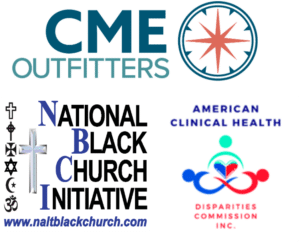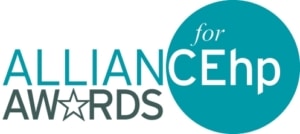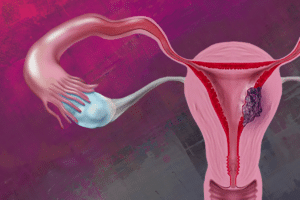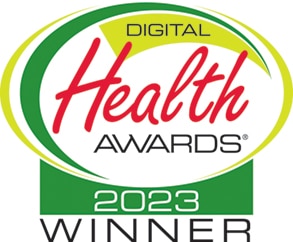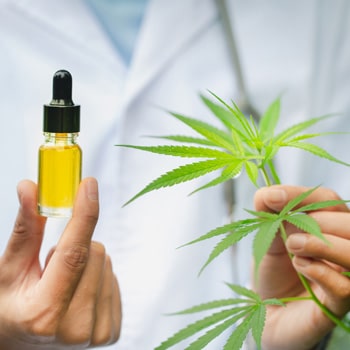 As cannabis and CBD continue to grow in popularity for use in medical treatments, many healthcare providers are unprepared to answer patients’ questions about its medical use, benefits, potential drug-drug interactions and how to address patient concerns.
As cannabis and CBD continue to grow in popularity for use in medical treatments, many healthcare providers are unprepared to answer patients’ questions about its medical use, benefits, potential drug-drug interactions and how to address patient concerns.
We sat down with Paul Carney, MD, Professor of Neurology, Pediatrics, and Neuroscience at the University of North Carolina, who will serve as Chair of CME Outfitters’ upcoming CBD Conference 2020: Exploring the Evidence for Medical Cannabis in Clinical Practice for a Q&A on how healthcare providers (HCPs) can better understand the evidence-based guidance needed to navigate questions and get patients the answers that they need.
Discussing the Use of Medical Cannabis
CME Outfitters:
What challenges do healthcare providers face in addressing patient questions and concerns regarding medical cannabis use?
Dr. Carney:
Lack of education and authoritative information is a key reason healthcare providers feel unprepared to answer patient questions around medical cannabis. Differences in products used in trials versus products available on the market can be confusing, as can be potential drug interactions. The practical matters of building a medical cannabis practice can be daunting as well.How to navigate the medical legal prescription is another major barrier. That’s why conferences like this one are important to helping HCPs be informed when speaking to patients about medical cannabis and CBD.
CME Outfitters:
Why are patients so keen to look to medical cannabis for help? What impact can medial cannabis have for patients?
Dr. Carney:
Well, patients with chronic pain, who are undergoing chemotherapy, or who are affected by multiple sclerosis or respiratory disease and psychiatric disorders may be considering medical cannabis as an alternative therapy. Over the counter use for insomnia and anxiety is another area major interest in use by patients with insomnia and depression. The National Academies of Sciences, Engineering, and Medicine (NASEM) recently published a comprehensive review of the evidence and medical literature on the health effects of medical cannabis and said there is “conclusive and substantial evidence” that medical cannabis is effective for alleviating chronic pain, chemotherapy-induced nausea and vomiting, and spasticity associated with multiple sclerosis. They also concluded that there was “substantial evidence” for an association with respiratory disease, risk of motor vehicle crashes, lower birth weight, and schizophrenia. Recently, the FDA approved the use of CBD for rare forms of epilepsy in children and adults.
CME Outfitters:
What are some questions patients might ask that healthcare providers should be prepared to answer?
Dr. Carney:
Patients often ask about how they can obtain a prescription for medical cannabis and state licensing, how medical cannabis or CBD can help with certain disorders, if cannabis or CBD is an option for them, its use as an alternative to opioids, and what kind of interactions can occur. We address these questions during the conference and take more in-depth looks at cannabis and the evidence for use in treating certain disorders like insomnia, autism, mood disorders, rare diseases,and chronic inflammation.
CME Outfitters:
What else should HCPs be prepared to address when it comes to educating themselves and their patients on medical cannabis and CBD?
Dr. Carney:
We’ll discuss not only the effectiveness, appropriate use and safety concerns of medical cannabis in clinical practice, but also some of the latest developments and research that physicians, physician assistants, nurses, nurse practitioners and pharmacists should be aware of when discussing medical cannabis with their patients.
CBD Conference 2020: Exploring the Evidence for Medical Cannabis in Clinical Practice takes place this February 26-27, 2020 at the LINQ Hotel in Las Vegas, NV, immediately prior to the beginning of the 12th Annual Chair Summit: Master Class for Neuroscience Professional Development.View the faculty, agenda and learn more at www.ChairSummit.com.
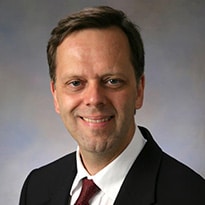
Paul R. Carney, MD
Professor of Professor of Neurology, Pediatrics, and Neuroscience
University of North Carolina at Chapel Hill
Chapel Hill, NC

